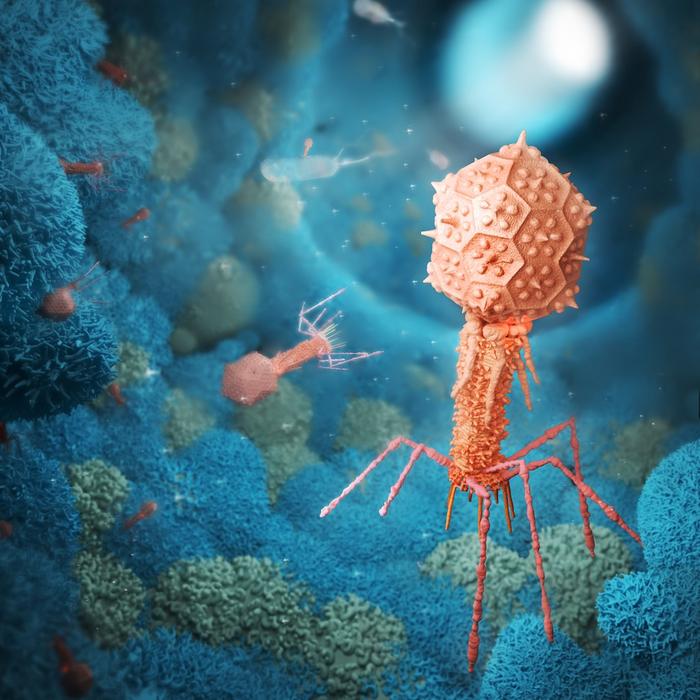Phage interactions with bacteria are well known, and interactions between bacteria and their mammalian host can lead to a range of symbioses. However, the impact of bacteriophages on mammalian cellular and immunological processes is not well understood. Now, a new study by researchers at Monash University suggests that mammalian cells internalize phages as a resource to promote cellular growth and survival.
The findings are published in PLOS Biology in an article titled, “Mammalian cells internalize bacteriophages and use them as a resource to enhance cellular growth and survival.”
“There is a growing appreciation that the direct interaction between bacteriophages and the mammalian host can facilitate diverse and unexplored symbioses,” wrote the researchers. “Yet the impact these bacteriophages may have on mammalian cellular and immunological processes is poorly understood. Here, we applied highly purified phage T4, free from bacterial byproducts and endotoxins to mammalian cells and analyzed the cellular responses using luciferase reporter and antibody microarray assays.”
In order to investigate how mammalian cells’ immune responses interact with and are modulated by interactions with phages, researchers led by Jeremy J. Barr, PhD, associate professor at Monash University, applied phage T4 to mammalian cells in vitro and analyzed the cellular responses using luciferase reporter and antibody microarray assays.
The researchers found that T4 phages did not activate DNA-mediated inflammatory pathways, but triggered a sequence of signaling pathway events that promote cellular growth and survival.
“Highly purified T4 phages were rapidly internalized by mammalian cells and accumulated within macropinosomes but did not activate the inflammatory DNA response TLR9 or cGAS-STING pathways,” noted the researchers. “Following 8 hours of incubation with T4 phage, whole cell lysates were analyzed via antibody microarray that detected expression and phosphorylation levels of human signaling proteins. T4 phage application led to the activation of AKT-dependent pathways, resulting in an increase in cell metabolism, survival, and actin reorganization, the last being critical for macropinocytosis and potentially regulating a positive feedback loop to drive further phage internalization.”
Future studies are needed to determine why cells use phage particles as resources, and whether they have specifically evolved via adaptation to benefit from this internalization.
According to the authors, “This preliminary study provides novel insights into the impact phages have on mammalian systems, with broader potential implications across the fields of immunology, phage therapy, microbiome, and human health.”
Barr added, “This work provides new insights into the additional benefits that bacteriophages may have on their mammalian hosts. This is of particular importance given the increased use of phage therapy to treat antibiotic-resistant infections.”



